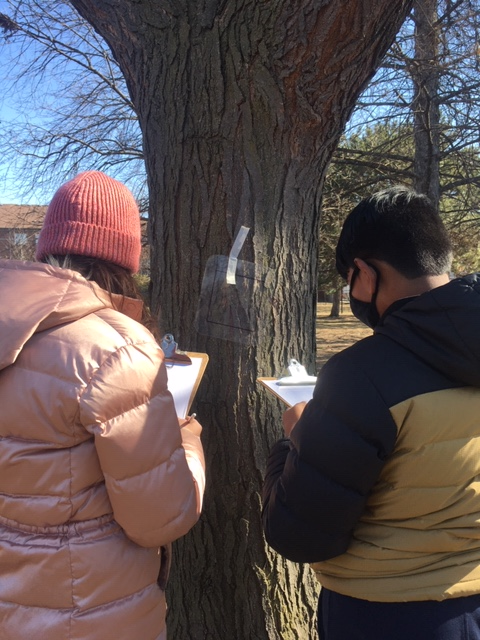A new active school travel (AST) initiative led by the Toronto and Region Conservation Authority (TRCA) being implemented across Brampton & Caledon is approaching school travel through a distinct ecological lens. It will engage students through a unique air quality monitoring activity using lichen.
“Lichen act as great air quality indicator and so in this program students study them during various times to understand how pollution levels are different at school drop off times in comparison to when there is less traffic,” says Vicky An, Program Manager, Professional Development Education Program Services at the TRCA. The authority has previously distributed lichen kits to schools and delivered presentations to help kids understand the science behind studying pollution using lichen. The project will utilize support from the Ontario Active School Travel Fund to engage up to 50 additional classes in the coming school year.
The lichen program has found quite an uptake among students and educators, with several teachers tweeting enthusiastically about their classes’ experiences earlier this year. The hands-on approach — where students use scientific measurements to assess pollution in and around school premises — helps students with diverse learning styles to understand more about the adverse effects of traffic on the air they breathe. This in turn reinforces the idea that walking and wheeling to school can help improve air quality around schools.
Additionally, the TRCA is integrating active school travel into their Sustainable Neighbourhood Action Program (SNAP) in Bramalea and West Bolton neighbourhoods, where they plan to host pop-up events to promote active transportation. The streets of Brampton will also find some added colour thanks to the student wayfinding program that is also being executed with the new funding.
The initiatives in Brampton & Caledon are one of the latest community-based projects to receive support from the Ontario Active School Travel Fund.

